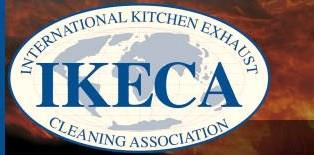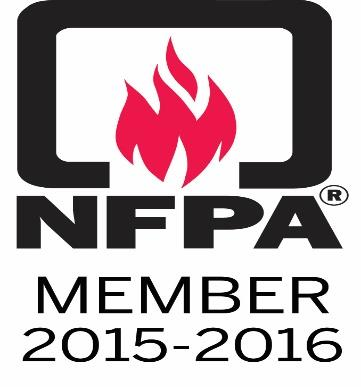Kitchen Exhaust Duct Cleaning Service
WHY CLEANING ?
The cooking exhaust systems is probably one of the most ignored appliances in the kitchen. Whilst looking around a kitchen, it is rare for anyone who is not involved in either installation or maintenance of the system, to really bother looking around it. The exhaust system duct, located just above the cooking ranges, contains the retaining trays, where the fat and grease that builds up on the surfaces of the duct, runs into. At the top of the duct is an extraction system made up of a fan in a housing that draws the air from below through the system, to the point of expulsion. To disregard this system however is to underestimate the importance of the system. Few people outside of those directly involved realize the importance of the cooking exhaust system, and the extremely significant role it plays in the kitchen.
THE NECESSITY FOR A COOKING EXHAUST SYSTEM
The purpose of a cooking exhaust system is to extract the fumes and odors, which inevitably come out in the cooking process, together with any dust and dirt in the atmosphere. Without a cooking exhaust system, the fumes and deposits within the atmosphere would eventually amass themselves upon any available surface. Over a period of time, this build up leaves the area with a constant film of grease and dirt. With cooking exhaust systems, the fumes are drawn up into the hood, to provide a clean and healthy environment inside and expel contaminated air outside the building.
PREVENTATION OF BACTERIAL GROWTH
The buildup of grease and deposits leads to bacteria and microbial buildup, and consequently creates unhealthy environment. Bacterium needs an ideal breeding ground where there is warmth, nutrients, and moisture to provide the maximum growth. In a nest of grease to provide the nutrient, surrounded by the warmth and moisture in the air provided by cooking bacteria is in its element. In order to minimize this, the grease and other deposits that imbed themselves in the grease, have to be removed regularly.
ENERGY SAVING
A system that is not cleaned regularly becomes clogged, and when running is unsuccessfully attempting to draw air. This simply means the system is working for no good reason. The system is wasting energy, being turned on. In addition, as the system is becoming more and more clogged, the fire risk increases. When it finally is cleaned, it will require longer man hours, and a harder clean to get it back to an acceptable level. A periodic clean is more economical, and makes for a safer environment, as there is less time for the deposits to build up.
CONSEQUENCES OF A DIRTY SYSTEM
Over a period of time and with continued usage, grease builds up in the system and holds food and other particles to the surface, leading to the filters being clogged and overall inefficiency of the system. This in turn creates lingering stale smells and infusion of air borne grease particles into upholstery, carpets and any other porous surface resulting in the decrease of the lifetime of furniture, fixtures and fittings, as well creating and unpleasant atmosphere. More important than the mere unpleasantness of the atmosphere and the surface, is safety.
A coating of predominantly grease and fat, is an imminent fire hazard. Considering that there are gas burners in place and fryers being used, if there were to be a small fire, a buildup of grease and fat is going to make the situation far worse. Kitchens at the best of times can be extremely hot, and an ignition of a spark is a foreseeable incident, even when care is taken by the staff. Periodic cleaning of this buildup greatly minimizes the damage that could otherwise be caused. Someone’s life could depend on the fact that the fire could be contained. Severe grease buildup, however, make this an unlikely possibility.
A coating of predominantly grease and fat, is an imminent fire hazard. Considering that there are gas burners in place and fryers being used, if there were to be a small fire, a buildup of grease and fat is going to make the situation far worse. Kitchens at the best of times can be extremely hot, and an ignition of a spark is a foreseeable incident, even when care is taken by the staff. Periodic cleaning of this buildup greatly minimizes the damage that could otherwise be caused. Someone’s life could depend on the fact that the fire could be contained. Severe grease buildup, however, make this an unlikely possibility.
BENEFITS OF REGULAR CLEANING AND MAINTENANCE SCHEDULE
● Reducing the risk of fire hazards - prevention of high fat buildup.
● Adhering to fire, health and safety guidelines - a legal obligation to promote safety.
● Increased efficiency of the exhaust system - a clogged systems requires more energy to run, and is inefficient.
● Saving energy whilst running the system - a system which is extremely clogged would not be able to draw air efficiently, and would be running for very little effect.
● Longevity of the system - a clogged system would work harder, therefore decrease the life of it.
● Cleaner environment - removal of grease and dirt reduces the growth of bacteria and promotes a cleaner air flow.
● Fresher atmosphere - the removal of odors and fumes leaves the air cleaner to breathe.
● Preservation of fixtures, furniture and fittings - layers of grease deposits and dirt require cleaning. The more the cleaning required, the more wear and tear on the system.
● Cooking Exhaust Filters - The cooking exhaust filter becomes clogged with a buildup of grease, leading to a buildup of bacteria. A clogged filter is also not drawing air properly, working harder and costing you money. It also becomes a significant fire hazard.
● Adhering to fire, health and safety guidelines - a legal obligation to promote safety.
● Increased efficiency of the exhaust system - a clogged systems requires more energy to run, and is inefficient.
● Saving energy whilst running the system - a system which is extremely clogged would not be able to draw air efficiently, and would be running for very little effect.
● Longevity of the system - a clogged system would work harder, therefore decrease the life of it.
● Cleaner environment - removal of grease and dirt reduces the growth of bacteria and promotes a cleaner air flow.
● Fresher atmosphere - the removal of odors and fumes leaves the air cleaner to breathe.
● Preservation of fixtures, furniture and fittings - layers of grease deposits and dirt require cleaning. The more the cleaning required, the more wear and tear on the system.
● Cooking Exhaust Filters - The cooking exhaust filter becomes clogged with a buildup of grease, leading to a buildup of bacteria. A clogged filter is also not drawing air properly, working harder and costing you money. It also becomes a significant fire hazard.
HOW OFTEN KITCHEN EXHAUST SHOULD BE CLEANED?
The are many factors to determine the frequency of kitchen exhaust duct cleaning. Some of these are:
1. Type of cooking process. I.e. steaming or deep frying.
2. Usage per day.
3. Type of oil being used.
4. Grease filters maintenance.
5. Amount of Air flow.
6. Ambient temperature.
An inspection of the exhaust hood filters and behind the filters will give you an indication.
But as a rule of thumb:
1. Type of cooking process. I.e. steaming or deep frying.
2. Usage per day.
3. Type of oil being used.
4. Grease filters maintenance.
5. Amount of Air flow.
6. Ambient temperature.
An inspection of the exhaust hood filters and behind the filters will give you an indication.
But as a rule of thumb:
| Usage | Hours Per Day | Cleaning Frequency |
| Heavy Use | 12-16 | 3 Monthly |
| Moderate Use | 6-12 | 6 Monthly |
| Light Use | 2-6 | Annually |



Table 8-3.1
| Type or Volume of Cooking | Frequency |
| Systems serving solid fuel cooking Operations | Monthly |
|
Systems serving high Volume cooking
Operations such as 12 hours or 24 hours
Cooking, charbroiling or wok cooking
|
Quarterly |
|
Systems serving moderate volume Cooking operations |
Semi-Annually |
|
Systems serving Low volume cooking
Operations, such as churches, seasonal businesses
Or senior centers.
|
Annually |
Information from:
1. Phil Auckland’s Commercial Kitchen Exhaust Systems Manual, Canada
2. IKECA – International Kitchen Exhaust Cleaning Associations.USA
3. NFPA #96

What is NFPA 96?
NFPA 96 is the definitive standard on fire protection for all aspects of commercial cooking operations.
Requirements cover cooking equipment, hoods, grease removal devices, exhaust duct systems, fans, fire suppression systems, and clearance to combustibles.
Kitchen hoods, ducts, and motors produce grease during cooking that accumulates. This accumulation is the cause for most kitchen fires which can lead to significant downtime for your investment.
With 54% of all restaurant fires starting in the kitchen it is more important than ever to make sure the
exhaust is cleaned by properly trained qualified and certified professionals that are committed to clean to the highest standards in the industry.





